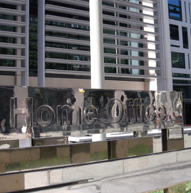The Home Office is still working through the Windrush scandal, but it’s far from the only example of departmental shortcomings, writes Mark Rowe.
The Home Office, ministers who set policy and officials who carried policy out, showed ‘an institutional ignorance and thoughtlessness towards the issue of race and the history of the Windrush generation within the department’, said Wendy Williams in her report on the scandal. Her independent review set out how innocent people who had every right to be in the UK were ‘poorly served’, over decades, and how slow the Home Office was to react when the scandal was publicised; such as in ‘a culture of disbelief and carelessness when dealing with applications’.
Home Secretary Priti Patel recently repeated her apology for ‘appalling treatment suffered by the Windrush generation’, and admitted there were ‘serious and significant lessons for the Home Office to learn’. This is two years after in April 2018 the Home Office set up a ‘Windrush Taskforce’; yet hardly any of the Windrush victims have received compensation, as Opposition MPs pointed out.
In reply, Labour’s Shadow Home Secretary Nick Thomas-Symonds complained of slowness in the compensation; and that ‘the Government too often call for reviews; they are too slow to act and too slow to right the wrongs. The Government’s Windrush compensation scheme managed to compensate just 60 people in its first year of operation’.
Leaving aside the politics and rights and wrongs of Windrush, other things that are in the charge of the Home Office also appear to be handled slowly, or stuck altogether, that are of more direct interest to the private security sector.
The day before that statement, Priti Patel made another in the House of Commons about the terror attack in Reading. The senior Labour MP and former Shadow Home Secretary Yvette Cooper asked about ‘the Government’s new counter-extremism strategy’ and when it would be published. Priti Patel replied that she would write to Yvette Cooper with details ‘shortly’.
The retail trade union Usdaw and The Co-operative have used the first anniversary of the Home Office closing a call for evidence about violence against retail staff. Labour MP Alex Norris’ Assault on Shop Workers Bill has seen its second reading in Parliament postponed. Alex Norris said: “A year is far too long to wait for the Government to respond on such an important issue, which the rise in violence during this outbreak has shown. Every day that they’re slow to act is a day when staff are left unprotected. Quicker action could have made a difference for hundreds over the last few months.
“I was pleased that last week the Home Secretary appeared to take the rise in abuse seriously and committed to looking into when the response to the Government’s call for evidence will be. I’ve followed this up with her, and will continue to push the Government until they provide our hard-working front line workers with the legal protection that they need and deserve.”
In the May 2019 print edition of Professional Security we featured a crime seminar by the trade body the Association of Convenience Stores (ACS). Home Office junior minister Victoria Atkins spoke to the ACS seminar by recorded video link …. even though the Home Office was a bare 300 yards from the seminar venue in Westminster. It suggested an unwillingness by elected politicians to come face to face with the people they were supposedly wanting to hear from to better shape public policy. In any case, what was the need for a 12-week call for evidence when the reasons for crime against shop floor staff (and others facing the public, such as private security officers and the emergency services workers) are well known and long-standing; as indeed set out at the seminar, attended by and spoken to by police and loss prevention and general retail managers.
The six years of Tony Porter as Surveillance Camera Commissioner (SCC) have come to an end without any named successor or whether there will be some new regulator that might link up related forensics and data generally. Either way, that the SCC office is in limbo puts in jeopardy the strands of work under Tony Porter – by, to stress, industry volunteers showing goodwill to seek to close gaps in training, standards and so on.
Turning to the Security Industry Authority, under previous Home Secretary (and later PM) Theresa May, the Home Office publicly committed in summer 2013 to SIA-regulation of private investigators arising from the News of the World phone-tapping scandal; nothing came of regulation of PIs. Nor did business licensing by the SIA happen, even though the SIA set a timetable of 2014-15. The Private Security Industry Act 2001 that caused the setting up of the SIA is showing its age, or rather it’s needing an update if only because of changes in business generally (online work and apps) and tech (such as drones – are they a form of video surveillance whose operators require public space CCTV SIA licences?!). While the SIA can make some changes, for larger changes it needs the PSIA changed by Parliament; which means an alteration of the Act; and parliamentary time and Home Office action.
For the SIA, and all these examples, the June 2016 referendum, the vote for Brexit and then the Covid-19 pandemic have been reasons for inaction on lesser questions of public policy. Except that in the mid-2000s the then Labour Home Secretary John Reid admitted that parts of the Home Office were not fit for purpose; hence the hiving off of some functions, to the Ministry of Justice.










